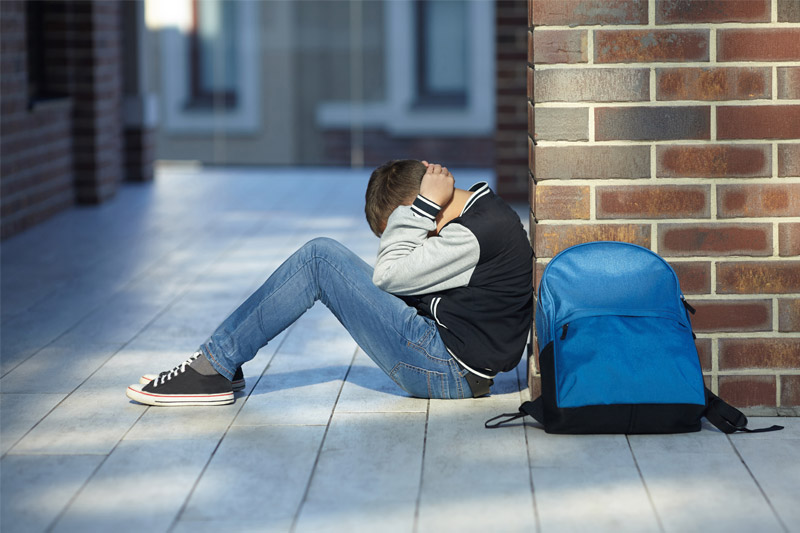School Violence – Yes, There is Hope & What You Can Do to Help
The headlines appear almost daily – another school shooting. It strikes fear in the hearts of everyone you know: parents, grandparents, and especially the staff, teachers, and students who must enter a school every day.

Now that the school year is getting started, safety will most certainly be a major concern. What should be put in place for student and staff safety? What is the best kind of security system? Some schools are hiring more security officers, others are creating training programs for students. Not only should this advanced preparation potentially cut down on harm to students, but it gives students, teachers, and parents a feeling of control. A feeling that something is being done. And yet our anxieties surrounding this are warranted and very real.
New data shows that school violence is linked not only to mental health problems, but to physical health problems and risk-taking behavior, including drug and alcohol use. Social exclusion and low self-esteem are factors of violence and there is a connection between being a victim of bullying or fighting and school violence.
Actually, 30% of young people admit to bullying and 23% of high-schoolers report being in a physical fight in the past year. Students report being threatened or injured with weapons on school property and there were 82 school shootings in 2018.
The Safe Schools Initiative Report suggests that 71% of school violence attackers were victims of bullying; a resounding 87% of the offenders left evidence that they were bullied severely.
Clearly this is troublesome, but perhaps not as troubling as it seems. Just 1.2% of all youth fatalities occur in school. A full 30% of pediatric deaths are suicides and in several states, the number of pediatric firearm fatalities is greater than pediatric motor vehicle deaths.
And while we continue to be inundated with horrific news stories, there is progress being made in efforts to prevent school violence. A heightened awareness and structured conversation among parents, teachers, community partners, and students is helpful. Not only is there more awareness but there is a better understanding of the indicators leading up to school violence and possible actions to take to prevent it.
As parents we can help:
- If you do choose to keep firearms at home, ensure that they are securely locked, that ammunition is locked and stored separately, and that children know weapons are never to be touched without your express permission and supervision.
- Take an active role in your children’s schools. Talk regularly with teachers and staff.
- Act as role models. Settle your own conflicts peaceably and manage anger without violence.
- Listen to and talk with your children regularly. Find out what they’re thinking on all kinds of topics. Create an opportunity for two-way conversation, which may mean forgoing judgments.
- Set clear limits on behaviors in advance. Discuss punishments and rewards in advance, too; it teaches self-discipline.
- Communicate clearly on the violence issue. Explain that you don’t accept and won’t tolerate violent behavior. Discuss what violence is and is not. Answer questions thoughtfully. Listen to children’s ideas and concerns.
- Help your children learn how to examine and find solutions to problems. Kids who know how to approach a problem and resolve it effectively are less likely to be angry, frustrated, or violent.
- Discourage name-calling and teasing. These behaviors often escalate.
- Insist on knowing your children’s friends, whereabouts, and activities. It’s your right. Make your home an inviting and pleasant place for your children and their friends; it’s easier to know what they’re up to when they’re around.
- Work with other parents to develop standards for school related events, acceptable out of school activities and places, and required supervision. Support each other in enforcing these standards.
- Make it clear that you support school policies and rules that help create and sustain a safe place for all students to learn.
- Join up with other parents, through JFS workshops, school activities and neighborhood and synagogue organized events. Talk with each other about violence problems, and concerns about youth in the community.
At Jewish Family Services, we make the social, emotional, and physical well-being of our community a priority. We work with our partners on Shalom Park offering educational workshops on parenting and mental health. Through the counseling of parents and adolescents, we are able to provide the skills needed for better outcomes in the home and school. If you or someone you now needs help, call us at 704- 364-6594 or go to jfscharlotte. org.
